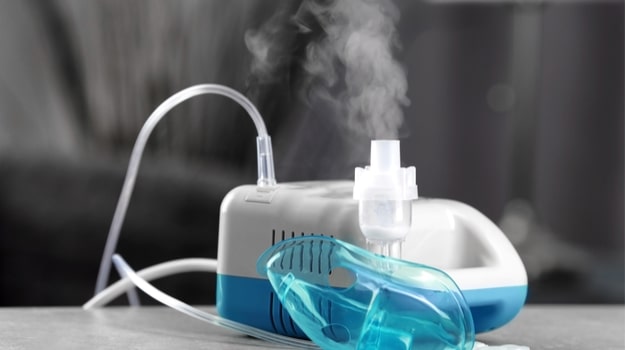COVID-19 Medications: Synairgen's Inhaled Interferon Beta Treatment Decreases COVID-19 Disease Risk by 79%
Source: COVID-19 Medications Jul 20, 2020 4 years, 5 months, 3 weeks, 4 days, 17 hours, 27 minutes ago
COVID-19 Medications: Synairgen, a British biotech company announced positive results from a clinical trial of its wholly-owned inhaled formulation of interferon beta in COVID-19 patients.

Synairgen indicated its nebulizer treatment resulted in a 79% lower risk of patients developing severe disease compared to those receiving a placebo. And the patients receiving the treatment “were more than twice as likely to recover (defined as ‘no limitation of activities’ or ‘no clinical or virological evidence of infection’) over the course of the treatment period compared to those receiving placebo.”
Importantly it is worth noting that the p-value of the 79% figure was 0.046, which only provides a narrow margin for being statistically significant. P-value, or probability value, is a determination of statistical value. The smaller the p-value, the stronger the evidence is that the null hypothesis should be rejected.
Importantly the null hypothesis is that there is no significant difference between specified populations, and any difference observed is related to sampling or experimental error. A p-value less than 0.05 is statistically significant; greater than 0.05, not statistically significant. Still, it is statistically significant, although barely.
Richard Marsden, CEO of Synairgen told Thailand Medical News via phone interview, “We are all delighted with the trial results announced today, which showed that SNG001 greatly reduced the number of hospitalized COVID-19 patients who progressed from ‘requiring oxygen’ to ‘requiring ventilation.’It also showed that patients who received SNG001 were at least twice as likely to recover to the point where their everyday activities were not compromised through having been infected by SARS-CoV-2.”
He said that the drug also significantly decreased breathlessness, one of the main symptoms of severe COVID-19. The results of the trial have not yet been peer-reviewed.
The recent double-blind, placebo-controlled study recruited 101 patients from nine hospital sites in the UK from March 30 to May 27. The cohorts were evenly matched in terms of average age ie 56.5 years for placebo and 57.8 years for SNG001 as well as comorbidities and average duration of COVID-19 symptoms before enrollment. The average duration of symptoms prior to enrollment was 9.8 days for placebo and 9.6 days for SNG001.
During the study, three patients died after being randomized to placebo, while there were no deaths in patients receiving SNG001.
Significantly patients with severe disease when admitted to the hospital who received SNG001 were more likely to be discharged during the study, but the difference was not deemed statistically significant. The median time to discharge for patients receiving the drug was six days while it was nine days for patients receiving placebo. Patients who received SNG001 seemed twice as likely to have recovered by the end of the treatment compared, but this trend did not hit statistical significance, either. But, by day 28, patients who received SNG001 had statistically significantly better odds of recovery.
Dr Tom Wilkinson, Professor of Respiratory Medicine at the University of Southampton and Tri
al Chief Investigator commented, “We are delighted with the positive data produced from this trial, which is the result of a momentous coordinated effort from Synairgen, the University of Southampton, University Hospital Southampton NHS Foundation Trust and the highly expert research teams across the NIHR network and regulatory bodies in the UK. The results confirm our belief that interferon beta, a widely known drug that, by injection, has been approved for use in a number of other indications, has huge potential as an inhaled drug to be able to restore the lung’s immune response, enhancing protection, accelerating recovery and countering the impact of SARA-CoV-2 virus.”
The protein Interferon beta is created when cells are infected by viruses. The company uses the protein in an inhaled formulation so that it is introduced directly into the lungs of patients with COVID-19 in hopes of stimulating an immune response. It had been partnered via AstraZeneca at one time but failed a Phase II trial in asthma about three years ago and AstraZeneca returned rights back to Synairgen.
While waiting for peer review of this data, the company is planning further studies, including with Gilead Sciences’ remdesivir, the only treatment approved for use for COVID-19 thus far.
For more on
COVID-19 Medications, keep on logging to Thailand Medical News
